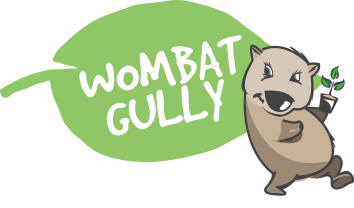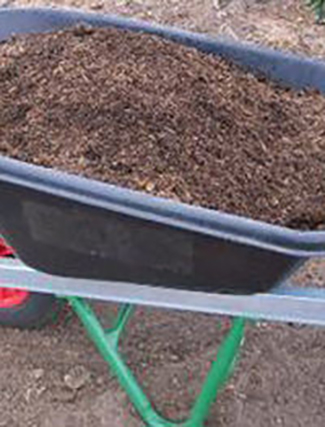Compost is your gardens best friend! It is natural way to a healthy soil – mother natures way of giving your plants a good feed.
A well-composted soil will encourage worm activity. If you have worms in your garden you have healthy soil. Worms also help compost the soil. If you have worms you know you are doing something right.
How to make your own compost
Even a small backyard can have a compost heap. Compost is not hard to make and your plants will love you for it. Anything that was once alive can go into a compost heap – although some things are better than others. Best of all, it’s a great way to recycle and help keep our environment healthy!
Where do I put it?
Find a suitable spot in your garden. The best position for your compost heap is on a bare patch of soil. Somewhere central so you will have easy access to the heap from your house for your kitchen scraps, yet still convenient for your garden waste.
You can simply make a pile on the ground, or you may choose to use a compost bin. There are many types of compost bins available. A simple wooden one such as the type we stock is suitable for most situations.
Regardless of the way you store your compost, regular turning of the heap assists in the composting process.
What do I put in it?
TECHNICAL BIT: The Carbon to Nitrogen ratio must be in the correct range for the composting process to work effectively. The best ratio is to have 25 to 30 parts of Dry Stuff (Carbon) to every 1 part of Wet Stuff (Nitrogen).
- Dry Stuff. Things such as shredded paper, straw, dry leaves, cardboard, egg shells, egg cartons, blood & bone, cold fireplace ashes.
REMEMBER – use all things in moderation. Too much of one thing can mess up the brew. - Wet Stuff. Things that are green, moist and sloppy – manure, grass clippings, soft green prunings, kitchen wastes. Do not use diseased prunings or rose clippings.
REMEMBER – 25 – 30 parts of dry stuff to 1 part of wet stuff. Just like making a cake.
How does it work?
As the materials inside the compost heap break down they generate heat – this is vital to the composting process. A compost heap cooks best at about 64ºC (160ºF).
If you find that your pile is not heating up enough, try forking in materials which are higher in Nitrogen such as kitchen wastes, grass clippings, fish meal, fish emulsion.
When can I use it?
Before long you should find some beautiful rich humus at the base of your compost pile. So go for your life and whack it on your garden and watch your plants grow!
No room? No Time? You can always buy bags of compost from us!

